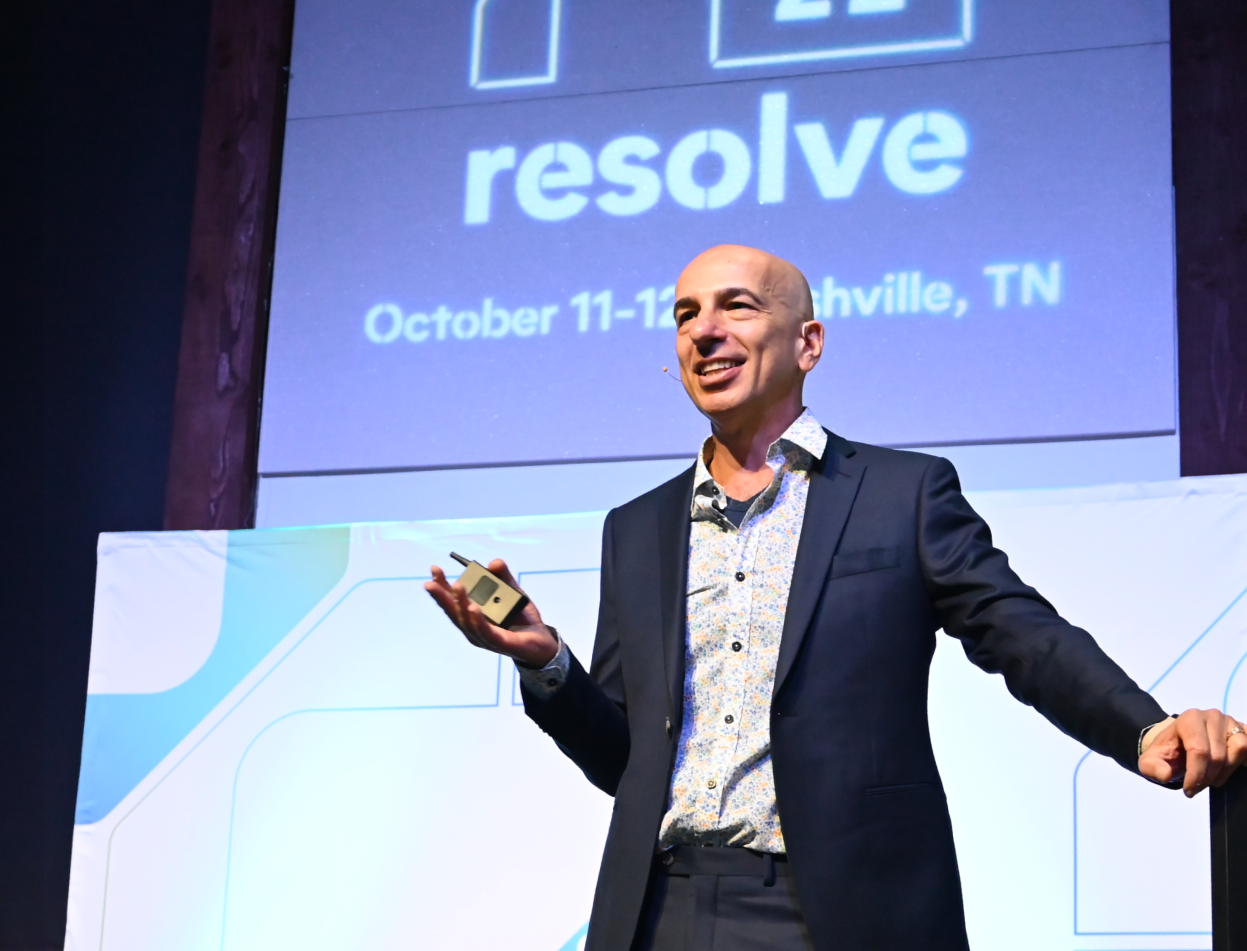Roughly 4 out of 5 drivers have some sort of Emergency Roadside Service (ERS) policy.
Whether through their insurer, an auto club, or even their cellular provider, adding ERS protection has become one of the easiest decisions a driver can make. But for contact centers, providing roadside assistance is not quite as straightforward.
Depending on the location, time and circumstances of a request, executing a roadside assistance call can be a long, expensive and inconsistent process.
The most common ERS challenges for contact centers include:
📞 Inaccurate IVRs. Typically, drivers calling in an ERS request will first encounter an IVR to be routed to the correct queue based on the severity or their location of their incident, whether on the highway or at home. However, customers frequently mishear IVR options or simply select the wrong number, causing them to wind up in the wrong queue.
🧑💻 Cumbersome agent experience. Once routed, a live agent speaks with the member to create a service request. These calls are long and complex to handle. Agents must get Verbal Copy from a tow shop by calling multiple locations and providing the request details until one confirms availability.
Once a tow shop confirms they will take care of the service request, the agent must continue to keep the member informed with ETA updates. This process is highly manual and time-consuming for agents, who easily get bogged down during peaks, causing longer wait times.
🧱 Inefficient tech stack. Until now, automating segments of an ERS request required disparate solutions, with no one solution able to automate roadside assistance calls end-to-end. Contact centers often have only partially automated flows, or use a variety of different solutions, which introduces its own set of complexities, from integration to implementation to costly ongoing maintenance investments.
😡 Poor member experience. Between dated IVR systems, overburdened agents, and single-point automation solutions that don’t fully resolve requests, the member experience of manual ERS requests suffers. Usually, this is seen in poor CSAT scores, long wait times, extended time stuck on the road, and disruptions to drivers’ schedules.
With a plethora of ERS providers available, one poor experience can be enough for a driver to switch brands altogether.
📈 Unpredictable Call Volumes. The nature of ERS calls is inherently unpredictable. While spikes regularly happen around the winter months due to road conditions, contact centers still struggle to keep up with seasonal demand. Moreover, year-round staffing is always an issue as storms can crop up at any moment, all while hiring agents continues to be its own challenge.
Finally, due to the nature of ETA status calls, it’s not uncommon for drivers to call back several times for a single request if they’re not kept informed, putting additional pressure on agents.
🔍 Lack of call visibility. Today, ERS contact centers typically lack the data needed to fully understand their caller intents and where they can make quick wins with automation. They lack data on how many KMI calls they make per day versus other call types, and where inaccurate routing exists. Without proper visibility, they can’t make improvements.
All of these reasons are precisely why we created Replicant Roadside Assistance. After automating millions of ERS calls for some of the biggest providers in North America, it’s become clear that businesses need a reliable, fast-to-deploy solution to relieve their contact centers.
Replicant Roadside Assistance is an out-of-the-box solution that fully automates the roadside assistance process end-to-end. From creating and managing service requests to assigning a tow and keeping members informed, the Replicant Thinking Machine resolves all interactions without the intervention of a live agent.
A battle-tested solution drivers and contact centers can trust
✅ Replicant Roadside Assistance is built to resolve.
While other roadside assistance vendors on the market focus on increasing agent productivity or deflecting customers to other forms of self-service, Replicant fully resolves requests without a live agent. From requesting service, to locating a driver, to getting verbal copy from tow shops, to keeping members informed, Replicant’s Thinking Machine provides a seamless, natural experience from end to end. As a result, live agents are augmented to handle more urgent and complex member engagements, like lock-ins involving pets or children.
🚀 Elastic capacity solves for seasonal demand & call spikes
The Thinking Machine answers calls 24/7 and can scale up when demand for roadside assistance spikes. With no call wait times and intelligent call routing, members get their requests started right away, and when they can’t, they’re accurately routed to the right queue every time.
⏱️ Automated KMI eliminates repeat callers
Keeping members informed is the number one way to prevent a driver from calling back to get an update on their tow request. With Replicant, KMI is fully automated, keeping members informed proactively so they never need to call the contact center for status updates. This frees up dispatchers to take on other requests and vastly improves the member experience.
📊 Call visibility ensures customers can tackle the next best use cases
With accurate routing and full visibility into caller data, contact centers can always see why members are calling and the types of calls their agents are engaged in. This gives businesses key data to make informed decisions on cost savings initiatives and next-best use cases for automation. Clearer data can also help contact centers hire and deploy agents more efficiently.
💰 Customers see value from automation in as little as 4 weeks
Replicant Roadside Assistance is battle-tested on millions of ERS calls for some of North America’s most trusted auto clubs. With pre-configured flows, contact centers can get up and running in as little as four weeks with our prebuilt solution, eliminating the risk of long and resource-heavy implementations. With a single implementation period, customers go live with the entire solution at once so they can begin accruing ROI immediately.
Case Study: CAA Club Group Resolves More ERS Calls With Replicant
About CAA Club Group
CAA Club Group (CCG) is part of the Canadian Automobile Association, which serves over 2.5 million members. They provide members with Emergency Roadside Services, complete Travel Services, Member Savings and comprehensive insurance offerings.
The Challenge
With the changes in weather in Canada, including extreme weather conditions, it’s critical CCG is able to meet member needs. After challenges with their previous automation solution, though, CCG was hesitant to commit to another automation platform but ultimately decided to test Replicant out with a call type that accounted for a smaller volume of their overall calls – credit card payments and updates.
The Partnership
After going live, Replicant was completing ~30% of their credit card calls and improved their containment rate by 3X from their previous solution. Their initial implementation was so successful, they expanded their partnership with Replicant to automate Credit Card Payments & Updates Calls, Inbound Emergency Roadside Service Calls, and Verbal Copy Calls.
The Impact
Prior to Replicant, the average handle time for ERS at home was about 11 minutes. Even with background noise and distractions, Replicant’s Thinking Machine gathers customer information and location, and gets a maintenance technician dispatched in under 5 minutes. As a result of implementing Replicant, CCG was better able to increase elasticity in their call centers in order to handle fluctuations in call volume from weather events, or the like, and enable their agents to focus on highly emotional or complex conversations. During this past winter, when call volume typically spikes, Replicant seamlessly scaled up to handle the equivalent call volume of 41 agents.
“Having implemented Replicant, we are prepared for whatever may come. Whether it’s an economic downturn, a spike in call volume tomorrow, or hiring challenges, we will be able to answer calls because of the automation we already have in place.” – Steve Bennett, Supervisor of Dispatch, CCG
 First Notice of Loss
First Notice of Loss 




